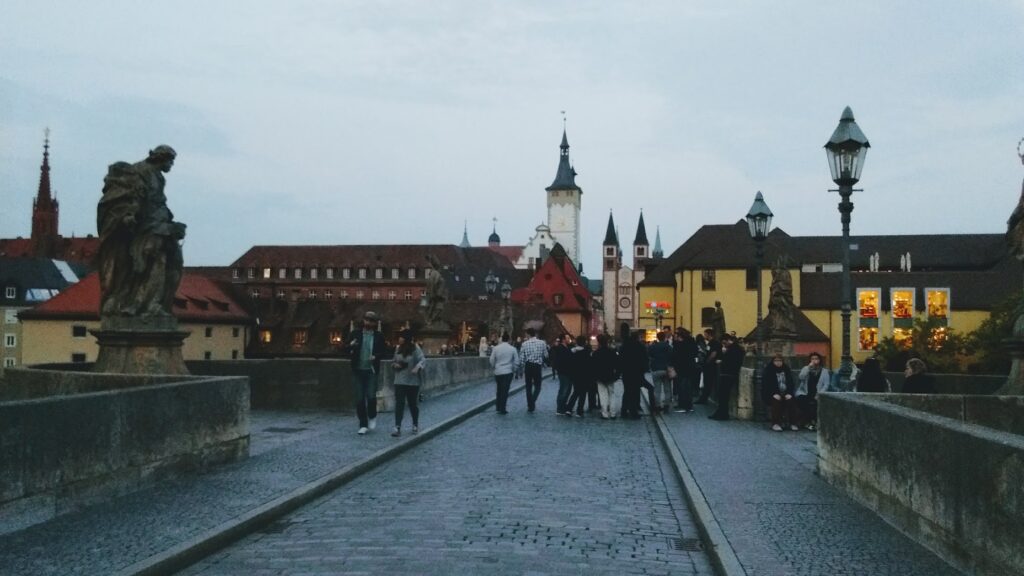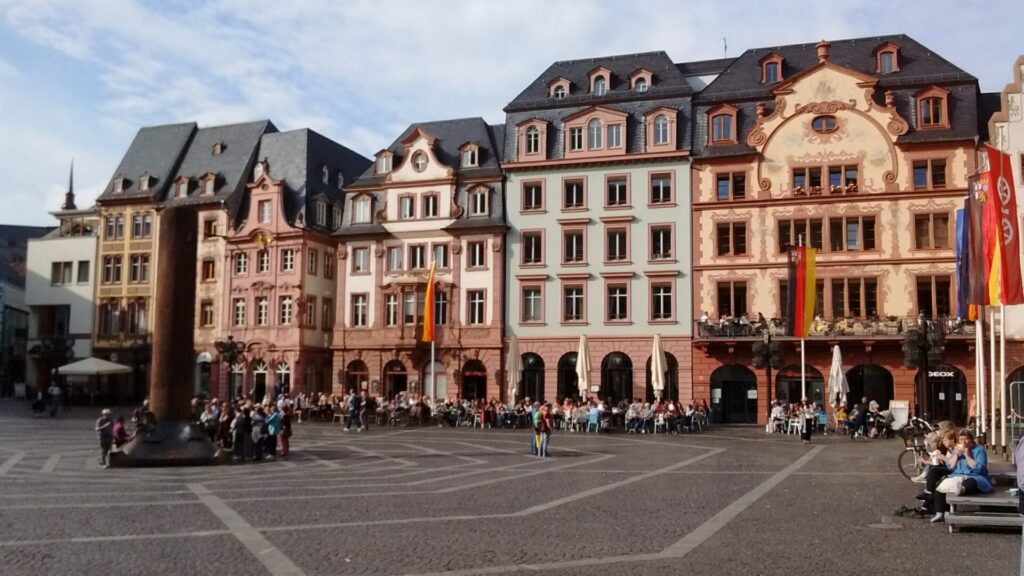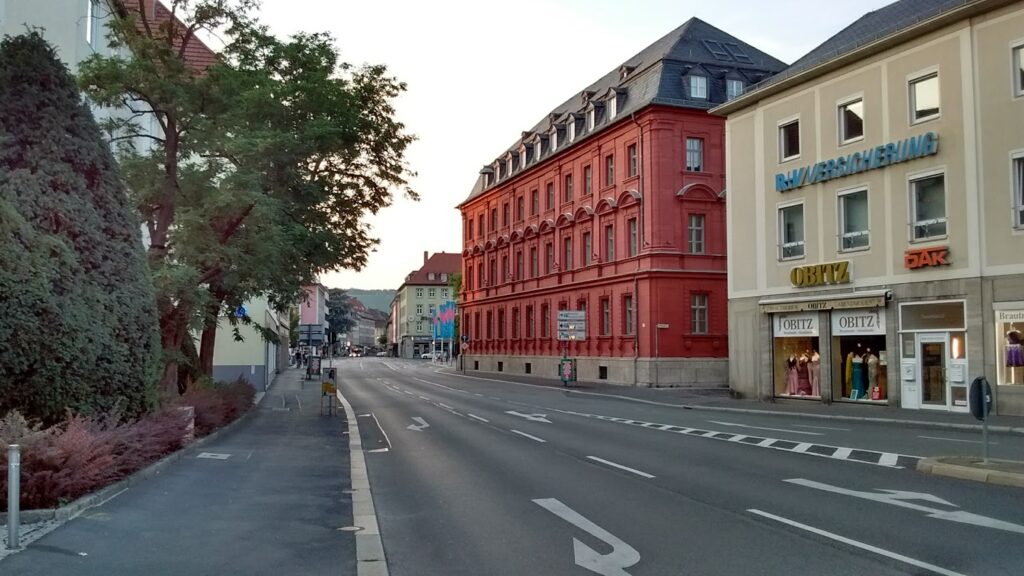What should you know before travelling to Germany?
Germany is an extremely popular European tourist destination with an amazing array of things to see and experience. In fact, Germany is the ninth most visited country in the world! With old-world castles, incredible hilltop fortresses like in Würtzburg, Bavarian forests, to modern cities like Berlin – Germany should be high up on anyone’s must-see list.
Is Germany Friendly to Tourists?
Germans may seem cold and a little distant at first, but they are very friendly and hospitable people. From all of the locals I’ve met, I was pleased to see that they have a great sense of humour once you get to know them!
I’ve been lucky enough to travel to Germany many times for extended business trips and I can confidently say that most anyone you meet in Germany will go out of their way to help when you ask.
For North Americans (or travellers from other countries alike), here are 10 differences that might come as a surprise to visitors to Germany, plus one more controversial tip, and a bit of travel advice on how to navigate those differences to make your travels a little bit more comfortable.

#1 In Germany, Drinking Alcohol in Public is Legal
It is quite common to see people drinking alcohol freely in public in Germany, and this might come as quite a shock to some. I found it quite odd that after a football game, I would see people drinking beer on a train when heading back to my hotel from Maintz. You can even walk around the airport with a bottle of beer!
Another surprising fact, according to Handbook Germany, is that teens as young as 14 can drink wine and beer when in the presence of their parents. The legal age to purchase beer and wine in Germany is 16, which may also be a little surprising to foreigners.

#2 Always Have Cash Handy
Expect to pay with cash throughout the country as it is still very much a cash economy. Cash is king as they say, however, credit cards are taken in most restaurants, bars and shops but it is important to check before you order. Cash is especially important for when you need to pay for toilets as you will see below.
#3 You have to Pay for Toilets!
Across Germany, you often have to pay about 50 cents (or half a euro) to use public toilets or the ‘WC’ — short for water closet — as they are called in Germany. You may even have to buy a ticket to get in through a turnstile. At these public toilets, you can pay with your credit card or with cash.

Often you pay with coins on a tip plate where you pay the attendant. In restaurants, toilets are usually free for customers, with the exception of some chain restaurants like KFC and McDonald’s in busy downtown areas. Many nightclubs and bars may also have pay toilets.
The plus side of pay toilets is that they are extremely clean and sanitary. Keep your change handy!
#4 Coffee Culture is Different in Germany
Germany has a great coffee culture and you will find some wonderful cafés to get your coffee fix. Unlike other parts of Europe, filtered coffee is available and typically served with cream and sugar. Also expect to find freshly ground cups of cappuccinos, lattes, and espressos.
Find a good coffee and pastry shop where you can order some fresh strudel with your coffee — there is nothing like it! It was one of the first things I searched for on my first trip to Germany years ago when touring Dusseldorf!
In hotels, you will find coffee pods quite popular like the popular European brand Nespresso. In your room, you will often be provided with a couple of pods of caffeinated and decaffeinated with a small machine to make your own.
If you are looking for your 16oz cup of drip coffee like you might find back home in North America, you can expect to find Starbucks throughout Germany (although not as plentiful) as well as the popular McCafes in McDonald’s locations.
Did you know that filtered coffee was invented in Germany? Melitta Bentz, a German housewife invented the process in 1908 in Dresden, Germany. She went on to found the Melitta coffee company!
#5 Don’t ever ask for tap water!
You most likely will get asked when dining what kind of water you want to order — still or sparkling — and you have to pay for it. Germans love sparkling water or sprudelwasser. It is highly frowned upon to order tap water and you won’t ever get offered a glass in a restaurant or bar. If you do order tap water you may even have to pay for it.
This tends to be a cultural thing more than a safety reason as I’ve actually drank tap water in my hotel rooms all over Germany and the water was always great and tasted perfectly fine. Rest assured though, German water is very safe, especially in larger cities. Just don’t expect to get it for free.
#6 German Attitudes Towards Customer Service

Customer service is not as personal as you would expect coming from North America. You most likely will have to ask for your check at the end of the meal, they won’t just drop it off as soon as you are finished eating, and service may not be as attentive.
It is asolutely ok, and often necessary to flag down your waiter in the restaurant (which can be considered rude in America) to order another drink or ask for the cheque. You also may be served by multiple servers, not someone assigned to your table or section of the restaurant.
#7 Germany’s Tipping Culture
Germans typically tip about 10% at restaurants. When paying with Cards, make sure to tell your server ahead of time the amount you would like to tip before you enter your PIN as they often don’t have the option to add a tip on the machine.
#8 Germans love rules!
I’ve learned that Germany is a very black-and-white culture when it comes to rules. I’ve often heard the phrase ‘that is not possible’ from Germans because I’ve asked for something outside the norm, or it didn’t seem to conform to the rules.
One such rule you should avoid breaking is the simple act of Jaywalking. You may get firmly reprimanded for jaywalking if you break this rule. Other soft rules such as standing on the wrong side of the escalator or conveyance to let people pass can draw the ire of Germans as well. Let me tell you, this doesn’t go over well at Frankfurt Airport!
Another rule you must obey when driving is no passing on the right side, and always move over to the right to allow for faster traffic to pass. This rule is especially true on high-speed motorways or ‘autobahns’ where you can expect to see vehicles at speeds over 220kph.
Can You Make a Right Turn at a Red Light in Germany?
For North Americans who are used to making that quick and handy ‘Right on Red’ turn at a red light — don’t — it is illegal in most of Europe, including Germany. Wait your turn as there are pedestrians and cyclists who don’t expect vehicles to be turning on red lights. Exceptions to this rule are when there is a specific turn arrow sign for your lane.
#9 Will Germans Understand English?
Yes, most Germans speak at least some English, and many are quite proficient English speakers, especially in tourist areas. Don’t be scared to ask for directions either, as locals are typically more than happy to help find your way. You may find that locals are not as apt to engage in small talk, however.
#10 Germany is closed on Sunday

Most workers are mandated to have the day off on Sunday as a day of rest. You will not find many shops or services open on Sunday so plan ahead. Most restaurants are still open though so you will not have to worry about getting a good German meal even on Sunday.
Is it offensive to talk to Germans about World War Two?
If you are respectful, I don’t think most Germans will be offended or take issue discussing, however, it is a subject that you probably would not approach someone you don’t know or are familiar with simply out of respect. For example, I would not strike up a conversation with a bartender about what their thoughts are on WW2.
You may also find Germans tend to be somewhat anti-nationalist, especially when compared to Americans. You won’t see a lot of German flags in the streets of Germany, except on official government buildings or tourist areas. Today in Germany It is compulsory to study the history of the war in detail, and Germans are taught that it is their job to ensure history is never repeated.
Also keep in mind it is illegal to do the Nazi salute, deny the holocaust or wear articles of clothing that have nazi symbols or insignias.
When touring Germany, you may also see brass plates or ‘stumbling stones’ throughout Germany indicating the last address of victims of the holocaust. Over 75,000 of these stones exist across the country.
Conclusion
After spending a lot of wonderful time in Germany, I’ve found that the country is an absolute delight to visit, and the locals are quite accommodating to tourists.
Germany is quite a large country, with very diverse things to see and do. Rules and cultural differences can be significant, however, so it is best to do your research before you travel so you can make the most of your trip.
If you have experienced cultural differences, or surprising rules that you have found odd that I’ve missed, please let me know below as I’d love to keep this list updated.
The number one rule for travel is to be respectful of the culture you are travelling to and enjoy your travels!

